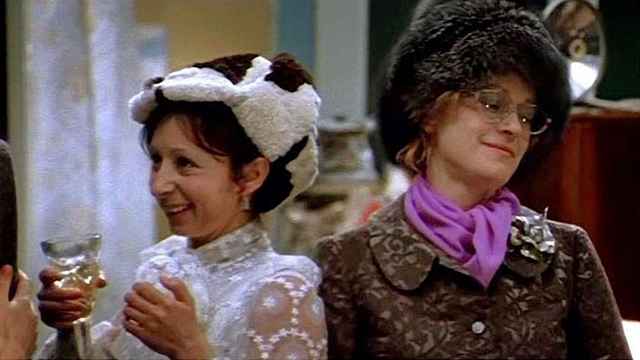The Wisla Polish film festival returns to Moscow for the fourth time with a large selection of contemporary and classic films.
The festival will run to May 5 with almost 60 different screenings at the Khudozhestvenny and Fakel cinemas.
“No other foreign film festival presents as many films as ours,” said one of the festival organizers, Malgorzata Szlagowska-Skulska, speaking after the festival opened last Friday.
The best Polish movies of 2010 will compete for the Elephant award, founded by the Russian Chamber of Film Critics. Two of the most anticipated movies selected for the competition are “Mother Theresa of Cats” by Pawel Sala, a drama based on a true story about two brothers who kill their cat-loving mother, which won best film at the Karlovy Vary Film Festival; and “A Simple Love Story” by Arkadiusz Jakubiak, about two screenwriters attempting to write a love tale.
Some festival films such as “The Rose” by Jan Kidawa Blonski touch on the Polish-Russian past when Poland was a communist satellite state. “The Rose” describes the Polish reality of the 1960s and how the Polish Security Service spied on its own people.
“I think that the code we are using here will be understandable for the Russian audience,” said actor Robert Wieckiewicz, who plays one of the main characters in the film. “I am very curious about the reception of the film and how Russians will judge the characters’ choices.”
The program also includes screenings of classic movies by two of Poland’s most famous directors: Andrzej Wajda and Krzysztof Kieslowski. Kieslowski’s acclaimed “A Short Film About Love” and “A Short Film About Killing” from his “Decalogue” series will screen as part of a tribute to the director on the 15th anniversary of his death.
Wajda’s 1969 film “Everything for Sale” looks at the filmmaking world through the disappearance of an actor during the making of a film, and “The Maids of Wilka,” nominated for Best Foreign Film at the Academy Awards, is about a middle-aged man returning to his home and the women of his youth.
Viewers also have a chance to watch a selection of animation from Se-ma-for, a Lodz-based studio that has won two Academy Awards for its work, and short documentaries and feature films from the Andrzej Wajda School of Directing.
Organizers say the festival has tapped into an abiding interest in Polish cinema.
Last year’s festival attracted 15,000 viewers of 43 films, and the Sputnik Russian Film Festival established in Warsaw has had equal success.
The festival can not only promote Polish cinema in Russia but also help improve Polish-Russian relations, Mikhail Shvydkoi, adviser to President Dmitry Medvedev on foreign cultural cooperation, said in a speech at the opening of the festival. “Let’s try to like each other, now without any tragedy,” he said. “Let’s believe that love is happiness, and let’s try to be happy.”
The Wisla Polish film festival runs till May 5. See the web site for film times and addresses: www.festiwalwisla.pl/news.ru.
A Message from The Moscow Times:
Dear readers,
We are facing unprecedented challenges. Russia's Prosecutor General's Office has designated The Moscow Times as an "undesirable" organization, criminalizing our work and putting our staff at risk of prosecution. This follows our earlier unjust labeling as a "foreign agent."
These actions are direct attempts to silence independent journalism in Russia. The authorities claim our work "discredits the decisions of the Russian leadership." We see things differently: we strive to provide accurate, unbiased reporting on Russia.
We, the journalists of The Moscow Times, refuse to be silenced. But to continue our work, we need your help.
Your support, no matter how small, makes a world of difference. If you can, please support us monthly starting from just $2. It's quick to set up, and every contribution makes a significant impact.
By supporting The Moscow Times, you're defending open, independent journalism in the face of repression. Thank you for standing with us.
Remind me later.






